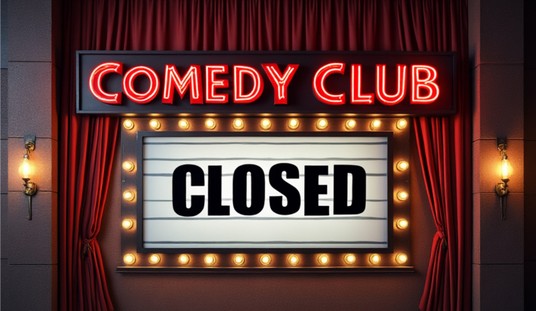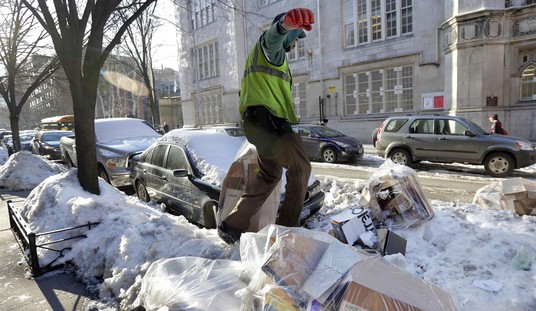Republican recruiters are finding it slow going in convincing top-tier candidates to run for open Senate seats in some states that the GOP needs to fashion a majority in 2014.
In other states, GOP leadership is having difficulty in heading off expensive primaries for Senate candidates who will probably face well-known, well-financed Democrats. The Democrats have done well so far in identifying and recruiting first-rate candidates with name recognition and fundraising abilities in Iowa, Michigan, and probably Montana, where popular former governor Brian Schweitzer is expected to run for the seat left vacant by retiring Senator Max Baucus.
In Iowa, the national party is in scramble mode, hoping to head off the candidacy of Rep. Steve King, a strong conservative and tea party favorite. King hasn’t declared yet, but that hasn’t stopped the GOP leadership from frantically searching for an alternative:
The party’s top national Senate campaign strategists are so concerned about squandering potential opportunities by failing to persuade popular Republicans to run in critical states that they were in Iowa last week to survey the landscape. The visit came after top Senate prospects U.S. Rep. Tom Latham, a prolific fundraiser, and Lt. Gov. Kim Reynolds, a rising star, decided against running despite aggressive lobbying by the National Republican Senate Committee.
The committee’s senior spokesman, Kevin McLaughlin, and its political director, Ward Baker, met privately Wednesday with state Agriculture Secretary Bill Northey and state Sen. Joni Ernst, who have expressed interest.
They invited Mark Jacobs, the former CEO of Reliant Energy, to breakfast Thursday. They also tried again, and in vain, it turns out, to persuade Terry Branstad, Iowa’s longest-serving governor, to run for Senate instead of seeking another term as governor.
Despite all that, the Washington delegation shrugged off the recruitment troubles. “It’s more important to take the time to get it right than it is to rush and get it wrong,” McLaughlin said.
McLaughlin and others have lamented the national party’s decision not to intervene in the candidate selection last year, when Republicans lost races viewed as winnable in Indiana, Missouri and elsewhere.
The mission in Iowa for 2014 is to beat Democrat Bruce Braley, a four-term congressman trying to succeed retiring six-term Democratic Sen. Tom Harkin. Braley is the party’s consensus prospect. He’s won Harkin’s endorsement and already has raised more than $1 million for his campaign.
In Michigan, GOP brass is working hard to draw former FBI agent and Chairman of the House Intelligence Committee Mike Rogers into the race. Currently, only little-known libertarian Congressman Justin Amash has indicated any interest in running, and he is reportedly being pressured by both Ron Paul and Rand Paul to forgo a shot at the upper chamber in order to remain in the House as the primary libertarian spokesman in the Republican Party. Neither man will be favored against three-term Rep. Gary Peters, who has the strong backing of both the state and national Democratic Party.
Republican chances in both Iowa and Michigan — even with open seats — have always been less than stellar. Both states have have been unfriendly to conservatives in recent elections and President Obama won both states comfortably in 2012.
It’s a different story in Georgia and West Virginia where Republican leaders are actively seeking to discourage candidates they believe can’t win while trying to cajole other candidates into entering the race:
National Republican officials also are working to head off primaries in several states and are taking sides when they can’t. That includes in West Virginia, which Republican president nominee Mitt Romney won in 2012 and where six-term Democratic Sen. Jay Rockefeller is retiring.
Rep. Shelley Moore Capito quickly announced her candidacy and became a favorite of the GOP establishment. Some conservatives complained about her votes for financial industry bailouts, and former state Sen. Patrick McGeehan has announced plans to challenge her.
National Republican Senate Committee officials said they would campaign and run ads against McGeehan if he appeared to be a threat.
In Georgia, several Republican candidates are considering trying to succeed the retiring Republican Saxby Chambliss. But so far, the two who have entered the race are arch conservative House members Paul Broun and Phil Gingrey.
National Republicans are treading carefully to avoid enraging the conservative base in Georgia. But the primary field could eventually include up to a half-dozen people.
Threatening to run ads against a candidate the national party doesn’t like is stupid politics. It only alienates party regulars who see such blundering interference as evidence that the national GOP is out of touch with the people. Broun and Gingrey have little chance at winning the primary given their narrow appeal even to Republicans. Instead of fretting over picking the “right” candidate, the GOP should be positioning itself to support whichever candidate comes out on top. In a state where the GOP nominee is very likely to win regardless of who ends up on the ballot, there are going to be a lot of ambitious people running for the chance. Nothing the national party does can stop that process.
Still, it is worrisome that so many potentially excellent candidates are remaining on the sidelines. After all, this isn’t 2012, when, a year out, there was a distinct possibility that it was going to be a Democratic year. That possibility probably scared off more than a few Republicans. More likely, the reluctance of some potential GOP candidates could be attributed to the early start by Democrats in some states where they seem to have coalesced around a single candidate a lot earlier than usual and aggressively begun to fundraise, putting them far ahead of any potential Republican rival.
With six open seats to defend of the 21 Democratic seats up for grabs in 2014, one would think the Republicans could glean an advantage. But unless some party stars get off the sidelines and into the race, Republicans are likely to blow another golden opportunity to take control of the Senate.










Join the conversation as a VIP Member